Tag Archives: american road trip
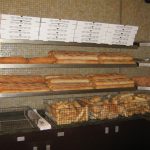
It’s All About The Bread – Sarcone’s Bakery, Philadelphia
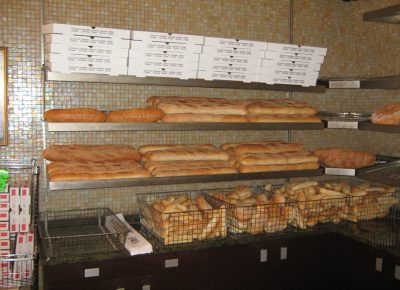
The world’s best bread? Maybe. JerseyMan sent me to write a piece about Sarcone’s, the fifth-generation Philadelphia bakery. A lot of fun to write, and an iconic place to visit and pick up some truly amazing bread. You can view the PDF of the magazine article here.
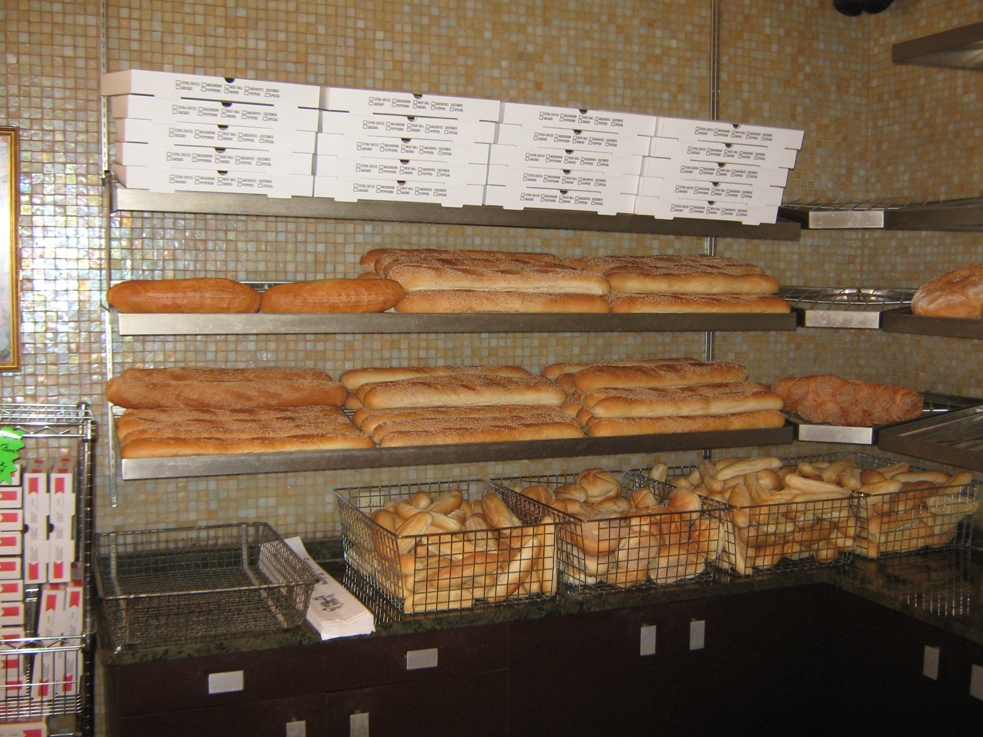
Bread worth waiting in line for.
It’s All About The Bread
Sarcone’s Bakery is in its fifth generation of baking bread for Philadelphians.
If you’re wondering just how good the bread is from Sarcone’s Bakery, consider that the winner of the Travel Channel’s “Best Sandwich in America” changed their rolls to Sarcone’s…after taking the prize.
In 2012 Adam Richman’s popular show spent ten episodes—with several elimination rounds—deciding which offering of meat on bread was the best in the nation. DiNic’s Roast Pork in the Reading Terminal Market won the hotly contested honor.
“The day after he got that trophy,” says Louis Sarcone Jr., the fourth generation owner of the venerable bakery, “the first thing he did was switch his bread to Sarcone’s.”
A bold move, to say the least.
“People were blown away by it,” Sarcone remembers. “You just won best sandwich in America. Not Philly, America! His answer was, we want to stay the best. How do you improve our sandwich? We improved our bread.”
To those familiar with Sarcone’s Bakery on South 9th Street, though, DiNic’s switch isn’t as earthshaking as it appears. The irony is that in changing a national award-winning formula, DiNic’s turned to an institution that hasn’t changed anything in 96 years.
At least they went with someone who has the technique down.
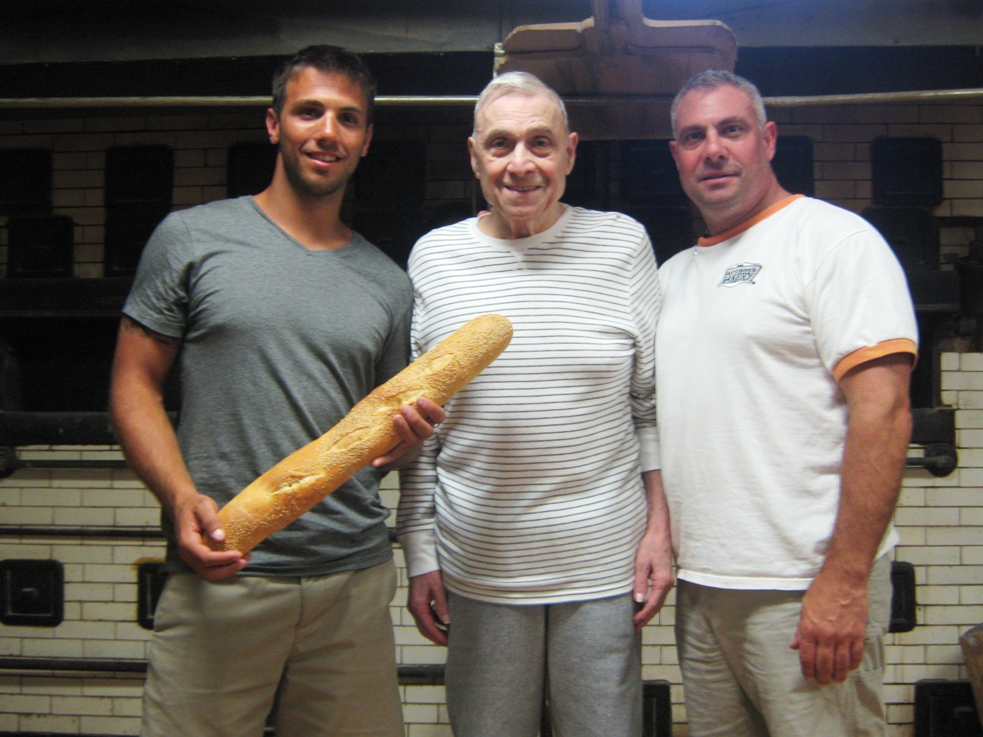
Three generations of bread-making Sarcones.
Sarcone’s has survived two World Wars, the Great Depression and every recession since. But perhaps more remarkably, it has survived what can be the toughest challenge several times…the next generation.
Sitting relaxed on the store’s window ledge, Lou Jr. shares the secrets of the family’s continued success. His son, Louis Sarcone III, stands patiently nearby, occasionally offering his own thoughts but seemingly more to learn the art of the interview from Dad…who is clearly versed in giving them.
“If you don’t listen to the generation before you, something gets lost,” Lou Jr. says. “You have to pay attention, and that’s the hardest thing for generational businesses, listening to the one before you. Even if you disagree with that person, you can really screw up a family business if you don’t listen.
“My grandfather, the first thing he told me was, if you put too much food in your mouth, you can’t chew. The younger generation sees a business, they see financial, they see money, they see an opportunity for the brand. If you try to expand too much, you lose something. You lose control of a business, you may lose a recipe, you may lose the quality of the product.
“But if you keep your product the same and keep trucking along, your customers will always come in because you make a great product.”
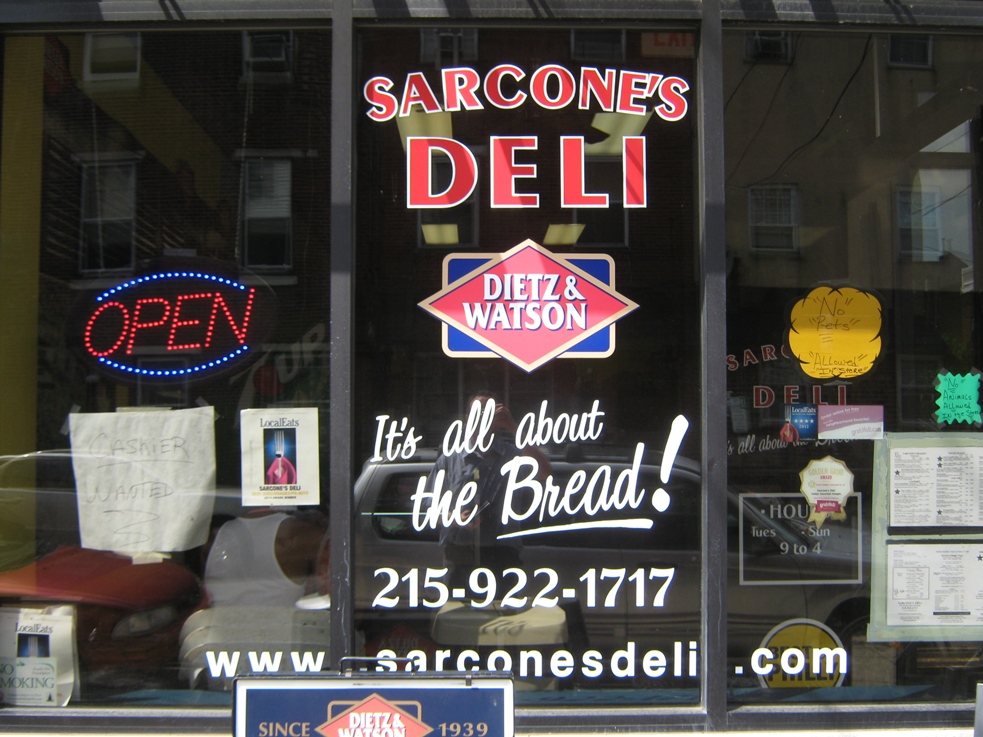
If you’re going to expand, do it next door.
This isn’t to say that there’s never been attempts to expand the name, or even ill-advised ones. Sarcone’s Deli just up the street uses the bakery’s bread, and they are doing just fine. But opening delicatessens elsewhere proved a challenge. Possibly with his grandfather’s words in the back of his mind, Lou Jr. pulled back the reins.
“My first cousin, Anthony Bucci, was an executive chef for the Wyndham Plaza. He got tired of working for big companies. He opened his own deli in Limerick; he’s been there 28 years. We opened the deli about 12 years ago. I let him run it. The only thing I’m involved in is paperwork and making bread.
“We expanded; we had five delis not including our own. My father had gotten sick at the bakery, and my cousin had a heart attack and was out for a year and a half. I couldn’t do day-to-day operations for two businesses. We put too much food in our mouth, I did.”
The younger Sarcone adds: “You have to keep an eye on the franchises, because you want everything to be the same. They’ll start adding things that don’t belong.”
Lou Jr. agrees. “We use Di Bruno cheese. They might go to the supermarket and get it a dollar cheaper. Stuff like that happens. You don’t want it to happen, but it could happen. So before we had that black eye, we closed the deli.”
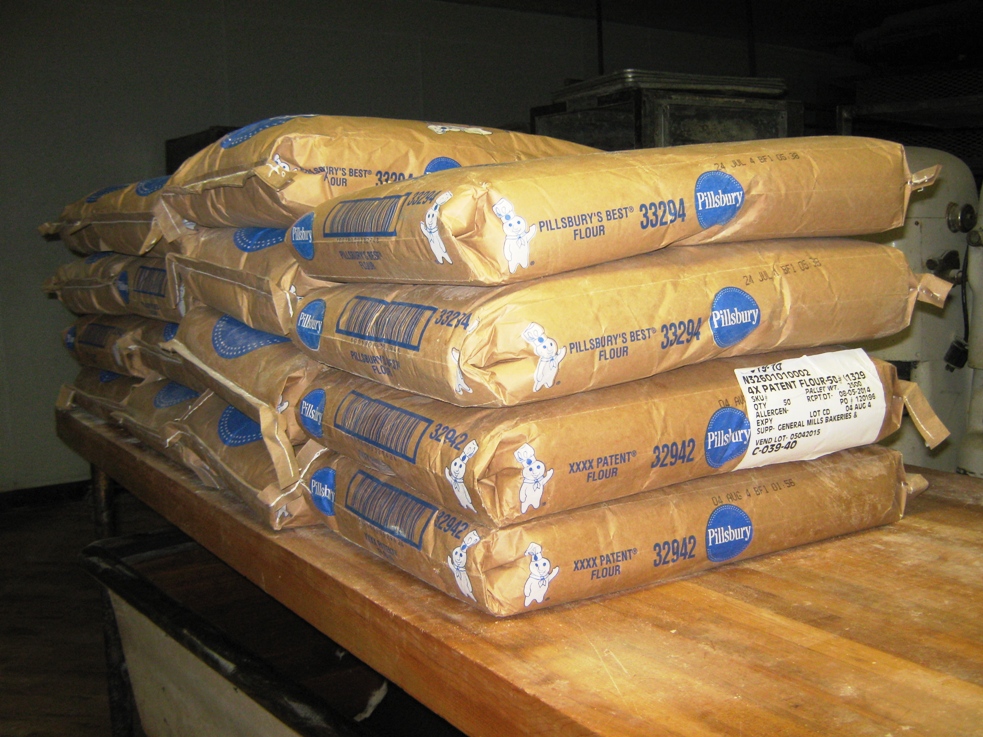
The key ingredient. Actually pretty much the only ingredient.
So while Cherry Hill residents may have been disappointed, Lou Jr. was content to go back to running the bakery. No reason to change what worked for four generations, be it the nature of the business or the recipe for the bread.
“I’ve never changed the recipe,” he notes. “Sometimes the quality of the flour may change, maybe protein levels aren’t there and you have to add a little bit of protein. We do have to adjust for that. But as far as changing the recipe, no. It’s water, flour, salt and yeast.”
But lest anyone think they can bake bread as good as Sarcone’s once they know the ingredients, Lou describes the craftsmanship of the baking process. The real secret? Time.
“It’s a six hour process. We have a guy that comes in at 12:00 every night. The dough sits for two hours. The bakers start coming in at 2:00 AM, processing the dough, the various shapes, sizes, and measures. It takes two hours to do that, so that’s four hours. Then they have to turn it into a loaf of bread, turn it into a roll, so by the time the bread is mixed and comes out of the oven, it’s six hours.
“No commercial bakery shop is going to wait six hours; they’re going to put in preservatives and meet the demand.”
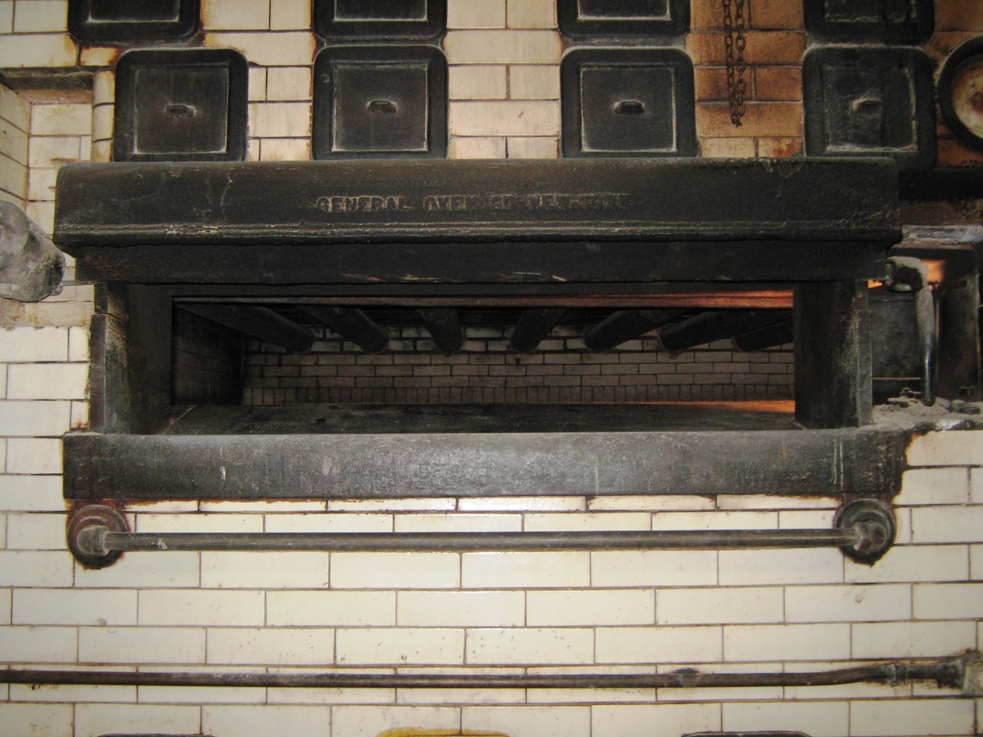
Ovens made before “planned obsolescence” was a thing.
Brick ovens make a difference too, as the younger Sarcone points out: “What also makes us unique is our ovens. They were built in 1920; you can’t find them anywhere anymore.”
Dad continues. “The alternative is metal, an oven that revolves. The only thing that revolves in a brick oven is our bakers. We go in with 15-foot sticks and move the bread around ourselves, to the hot spot in the oven.
“Ever see trucks that say ‘hearth-baked bread’? That’s baloney, because nobody uses brick, especially in a commercial bakery. Ours is hearth baked, there’s no metal in between the bread, the dough, and the hearth.
“It’s an art. There’s no timer, no thermostat on the oven. Well, there is, but they’re untrue. So it’s all knowing the dough, how loose it was or how cold it was or how warm it is out, how long it’s gonna take. And the sound; you pull a loaf of bread out and tap the bottom, you hear a certain sound, you know it’s done.”
It takes time to master the craft, so Sarcone keeps people around that do. “Bakers have been here at least ten years or more. They like what they’re doing, so they stay. I treat everybody like we’re family. Morale is good here, considering people are getting up at 2:00 in the morning.”
As Lou Jr. freely shares, the secret isn’t an ingredient or brand of yeast…it’s taking the time, sticking with what works, and not putting so much food in your mouth that you can’t chew. That’s the family formula that has kept the store in Philadelphia for nearly a century.
There have been plenty of awards and gushing press through the years, but Lou Jr.’s proudest moment was the locals’ response to a debilitating fire.
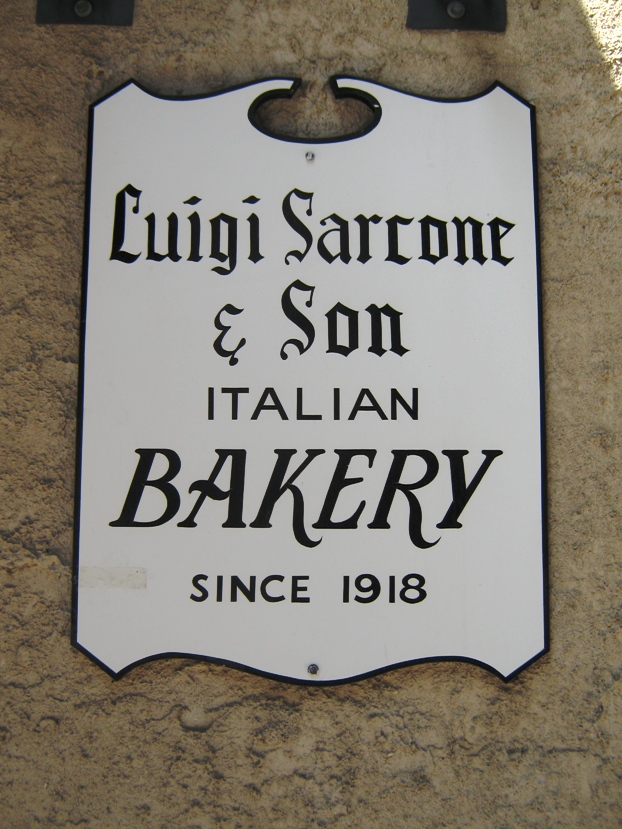
Beloved enough to inspire civic pride.
In October of 2000, a Molotov cocktail was thrown through the window, burning the front of the store down. The culprit was never captured nor the motive revealed—“there’s a million stories out there, pick one,” Lou says—but the city came together to literally lift the bakery from the ashes as quickly as possible.
“The fire department, the city council, the mayor, they came here to help us get open because they didn’t want to see us leave. Contractors, electricians, inspectors, zoning people, they were all here the next day. We didn’t have to wait. They were waiting for us.
“We were open a week next door. We moved our storefront into the packing area. It wasn’t pretty, but people actually liked that better. They saw men work, they saw the flour, they saw everything. We spent thousands to replace the store; they wanted the old way!
“That was something I’ll never forget, the way the neighbors and the city came together to help us.”
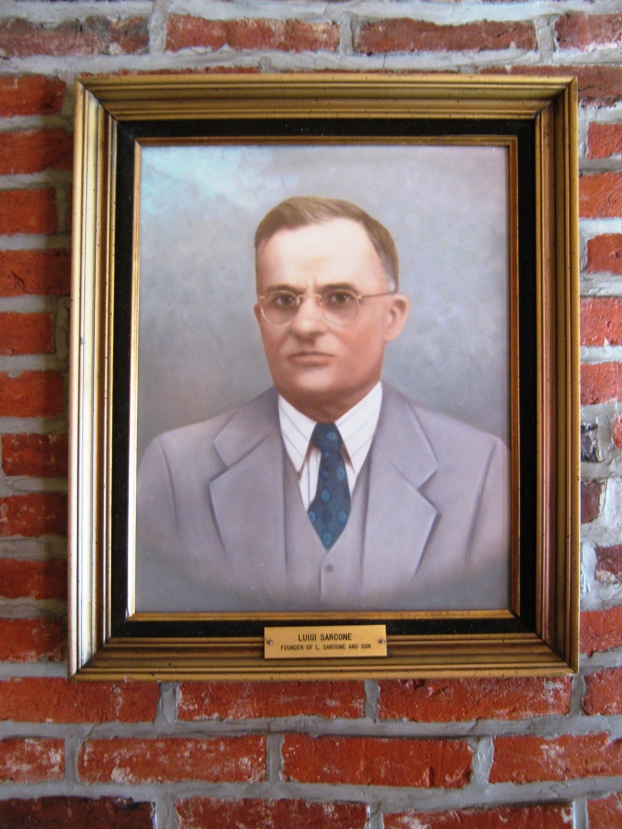
The first Sarcone, still overseeing the bread tradition.
Fourteen years later, Sarcone’s remains a beloved institution in Philadelphia—and a must-visit for tourists. Customers gather daily outside like music fans once waited for concert tickets before the Internet. Lines begin forming at six in the morning and sometimes extend for blocks.
To Louis Sarcone Jr., it’s the definition of success.
“Remember Springdale Road and Route 70 in Cherry Hill, used to be called the Point View Inn?,” he asks. “A little house. That guy had lines for years back in the 70s. He turned it into what it looks like now. Because he got massively big, he closed within a year, then it was Pizzeria Uno, now it’s a PJ Whelihan’s. That place, I could always remember, it was the longest lines ever for a family restaurant.
“You want lines. You want people to have a hard time getting in. Why is that line two blocks long? We gotta try it!”
Did this post make your day a little bit?
I hope so. If it did, I would really appreciate your support.
When you use this link to shop on Amazon, you’ll help subsidize this great website…at no extra charge to you.
Thanks very much…come back soon!
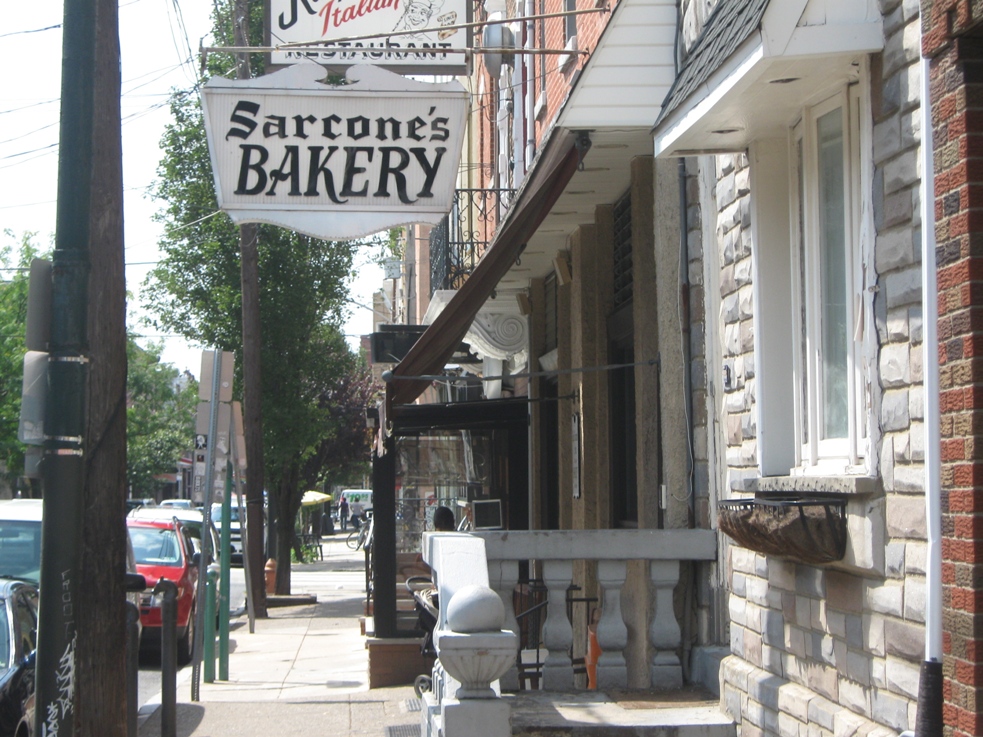
Chugging along since 1918.
Sarcone’s Bakery has been a Philly institution longer than…
…the Flyers, Eagles, and 76ers
…the Ben Franklin Bridge
…the 215 area code
…the Daily News
…WIP, WFIL, and WCAU radio
…the PSFS Building
…30th Street Station
…SEPTA
…the Schuylkill Expressway
…Pat’s and Geno’s cheesesteaks (and all of their successors)

Their Bestness probably reaches beyond Philadelphia.
Accolades for Sarcone’s from Yelp Nation:
In 64 Yelp reviews, Sarcone’s averages four and a half stars out of five. Some quotes from the bakery’s fans:
“In footie pajamas I offer night time prayers thankful that Sarcone’s exists and it’s so close to my house…’cause good bread they got…you seriously could put just about anything on that seeded Italian bread and it would be glorious.” – Kathleen D., Philadelphia
“It’s that alluring smell that makes you just want to rip off a piece and eat it. It doesn’t need butter, it’s perfect as is.” – Vinny P., Philadelphia
“My local farmer’s market has a small place in it that sells sandwiches. My Dad found out they were using rolls from Sarcone’s and asked to buy whatever they had leftover at the end of the night, and offered over triple what they originally paid for them. The Best Bread. Period.” Michelle M., Wilmington, DE
“You, along with many others, will line up to hopefully buy a long seeded roll, sandwich rolls, or anything else that comes fresh from their ovens. It’s a work of delicious, crispy crunchiness that cannot and will not be denied.” – Tyler R., Philadelphia
“Dear Sarcone’s – I miss you dreadfully. Whether I ate your bread fresh as I walked home, turned it into a hoagie or slathered it with garlic butter and baked it to soft yet crispy perfection, it always made the meal. There is no way to express the sadness I feel in my heart and in my mouth at now living so many states away…Love, Amelia” – Amelia L., Brighton, MA
“This place is why Philly can make a case for being the sandwich capital of the world.” – Chris W. Philadelphia
“I don’t even consider a Hoagie a Hoagie unless it’s made in a Sarcone Roll.” – Bruce B., Philadelphia
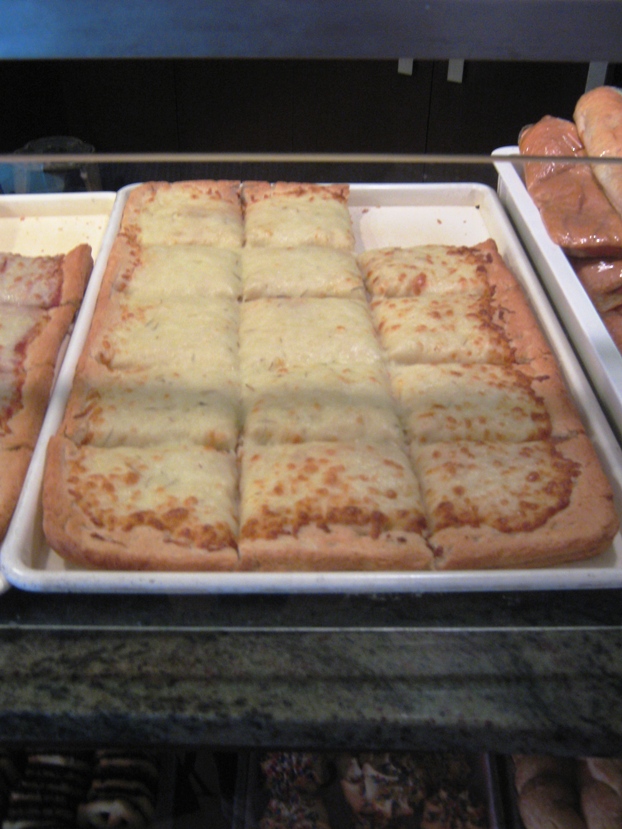
Yes, you can get some fine pizza here too. With a great crust.
Staples of Sarcone’s:
Seeded Italian Bread – “We’re known for putting seeded Italian bread on the map,” Lou Sarcone Jr. says. “If I stop making seeded bread, if I only made plain bread, Liscio’s would have to change their bread to plain bread. They couldn’t fake it out being Sarcone’s.” Primo’s Hoagies started out with Sarcone’s seeded Italian bread, until the expansion made it impossible for Sarcone’s to keep up the supply. “Once they establish their name they leave me,” Sarcone says.
Tomato Pies – Sarcone’s tomato pies on their garlicky baked Sicilian crust are actually a popular breakfast item with locals; as the Zagat website mention of Sarcone’s describes it: “The end result is almost like what you get when sweeping up leftover spaghetti sauce on your plate with the end of your bread.”
Pepperoni Bread – The pepperoni rolls (or sausage rolls, if you prefer), contain a generous amount of meat for such a delicacy, and the soft crust of the bread contains just the right amount of olive oil. If they’re out of pizza slices in your next visit, try one of these.
Bread Crumbs – There isn’t often leftovers in a bakery that usually sells out its products in the early afternoon, but Lou Sarcone knows what to do with them. “We let it get stale for four or five days, then grind it up and sell it as bread crumbs. Restaurants buy them by the hundred pounds; walk-in customers buy it by the pound,” Lou says.




















